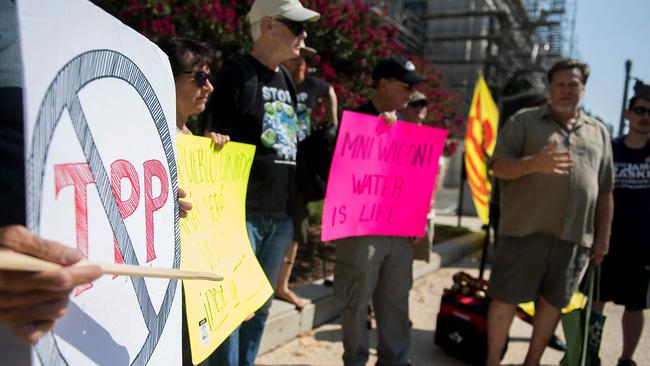US risks ‘falling behind’ on trade if it doesn’t make progress on TPP
The US will lose out if it doesn’t push ahead with the trade agreement, says a senior American trade negotiator.

The US risks falling behind countries including Australia if it doesn’t move ahead with implementing global trade agreements, according to a senior negotiator for the agriculture component of US trade deals.
“Today a pound of beef going from the US to Japan is a 10 per cent higher tariff than the same pound of beef coming from Australia,” said Darci Vetter, Ambassador and Chief Agricultural Negotiator at the Office of the US Trade Representative.
“During the TPP [Trans-Pacific Partnership] negotiations, Australia and Japan concluded and implemented a bilateral free trade agreement,” she told The Wall Street Journal Global Food Forum in New York. The Japan-Australia Economic Partnership Agreement came into force in January last year.
“If we don’t move forward with these free trade agreements, we will fall behind.”
Ms Vetter’s comments come amid a rising hostility towards free trade around the world. In the US, both Democratic presidential hopeful Hillary Clinton and Republican counterpart Donald Trump have been critical of the TPP. In Britain, anti-globalisation sentiment contributed to a vote to leave the European Union.
Treasurer Scott Morrison yesterday warned Australia against following a similar path, telling an audience of investors in New York that Australia needed to remain an open trading economy to be successful.
Ms Vetter also noted Australia’s participation in the ASEAN Free Trade Agreement, saying it affected US exporters of wine and dairy.
“If we implement TPP we will stay on a level playing field with our competitors in that region. But if we stand still we won’t,” she said.
“Brazil, Argentina, Australia, New Zealand and others are competitive in these areas and growing in their competitiveness.”
She backed the multilateral TPP, which covers 12 countries around the Pacific region, over bilateral free trade agreements that the US already has with countries involved in the TPP.
“TPP gives us a chance to update those agreements,” in the areas of environmental issues, protecting intellectual property, or even ensuring an open internet, given some of the deals were concluded before internet use was widespread.
Despite the bilateral Australia-United States Free Trade Agreement that came into force in 2005, Ms Vetter said the TPP would provide more opportunities for exporters of some products from both countries.
The TPP does not include China, but the country understands the necessity of modernising agricultural production to reach its climate change goals and tackle other environmental issues, Ms Vetter said.
The $US43 billion acquisition of Swiss farm chemicals and seeds giant Syngenta by the state-owned China National Chemical Corporation was an “interesting” case in point, she said.
“China’s been investing a lot into basic research into agriculture and in fact does cutting edge research in biotechnology, but what they have not been able to do is to turn that discovery in the laboratory into a viable product that’s available to its farmers.
“So there are different schools of thought on the acquisition but one is they are really buying the ability to take their scientific discovery and make it something their farmers can use.”
China has been protective of its seed supply, and its definition of national security is strongly linked to food security, she said.
But the US last month sued China at the World Trade Organisation over government support for production of rice, wheat and corn.
“China isn’t necessarily exporting those products, but by establishing a domestic price that is higher than the world price they certainly influence and stimulate production that we think otherwise wouldn’t occur, and have a real impact on global market price and global flows of that product,” Ms Vetter said.
“That corn, which has been stockpiled for some time, our industry contacts in China tell us that it’s of high price but low quality, and it’s not the kind of supply that China will need to really build and modernise its ag sector.”






To join the conversation, please log in. Don't have an account? Register
Join the conversation, you are commenting as Logout